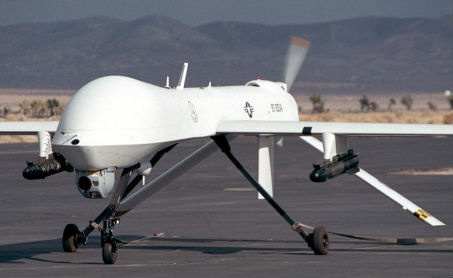Pakistan and the Predator

The Washington Times notes a study conducted by the Aryana Institute for Regional Research and Advocacy that surveyed 550 people living in areas of Pakistan subjected to Predator Drone strikes. The results are certainly interesting:
Between last November and January AIRRA sent five teams, each made up of five researchers, to the parts of FATA that are often hit by American drones, to conduct a survey of public opinion about the attacks. The team visited Wana (South Waziristan), Ladda (South Waziristan), Miranshah (North Waziristan), Razmak (North Waziristan) and Parachinar (Kurram Agency). The teams handed out 650 structured questionnaires to people in the areas. The questionnaires were in Pashto, English and Urdu. The 550 respondents (100 declined to answer) were from professions related to business, education, health and transport. Following are the questions and the responses of the people of FATA.-- Do you see drone attacks bringing about fear and terror in the common people? (Yes 45%, No 55%)
-- Do you think the drones are accurate in their strikes? (Yes 52%, No 48%)
-- Do you think anti-American feelings in the area increased due to drone attacks recently? (Yes 42%, No 58%)
-- Should Pakistan military carry out targeted strikes at the militant organizations? (Yes 70%, No 30%)
-- Do the militant organizations get damaged due to drone attacks? (Yes 60%, No 40%)
A group of researchers at AIRRA draw these conclusions from the survey. The popular notion outside the Pakhtun belt that a large majority of the local population supports the Taliban movement lacks substance. The notion that anti-Americanism in the region has not increased due to drone attacks is rejected. The study supports the notion that a large majority of the people in the Pakhtun belt wants to be incorporated with the state and wants to integrate with the rest of the world.
Obviously, this isn't the final word on whether these strikes will ultimately undermine the stability of the Pakistani government, but given the news out of the country of late, it seems that instability owes at least as much to Pakistan's dysfunctional political elite as it does America's counter-terrorism campaign in the tribal areas (it's also worth noting that Pakistan's political elite were dysfunctional long before America was waging a not-so-covert war inside the country's borders). For more on the issue see here and here.





